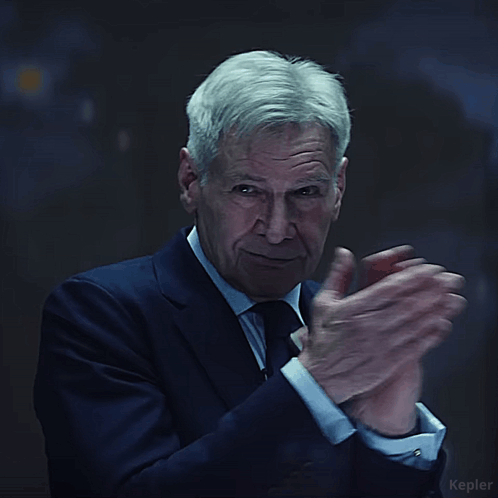Facilitation Is a Leadership Skill and a Pathway to Belonging
Facilitation means creating space for transformation. I lead with humility, knowing that unlearning and healing take time. True change happens when people feel safe enough to reflect, let go of old narratives, and reclaim their voice.

In today’s world, it often feels like we’re speaking past each other. We live in a time of hyper-connectivity, yet deep disconnection, where conversations are rushed, assumptions go unchallenged, and the spaces to truly hear one another are rare.
What’s missing isn’t just dialogue. It’s belonging.
We crave spaces where we can show up as our full selves. Where our voices aren’t just heard, but honored. Where difference isn’t something to be managed, but a source of collective wisdom. That’s where facilitation comes in, not just as a technical skill, but as a practice of humanity and healing.
And in a society shaped by speed, hierarchy, and polarization, that kind of space is rare and powerful.
What Is Facilitation, Really?
At its essence, facilitation is the act of designing and holding space for people to connect, reflect, and move forward together. It’s about creating the conditions for clarity, courage, and collaboration to emerge.
And in a society shaped by speed, hierarchy, and polarization, that kind of space is rare and powerful.
Facilitators don’t lead with answers. We lead with questions, presence, and care. We model what it looks like to listen deeply. We make it easier for people to understand themselves and each other, even when they disagree. That’s not soft work. It’s systems-shifting work.

Why It Matters Across Roles and Across Society
Facilitation is for more than meetings. It’s a critical leadership practice for:
- Organizational leaders seeking to build cultures of trust and inclusion
- Educators, trainers, and coaches who want to guide transformational learning
- Community builders and movement leaders working across lines of difference
- Anyone trying to repair the relational frictions that power alone cannot fix
In my work with leaders across the nonprofit and hunger relief sectors, I’ve seen how facilitation bridges what data alone cannot. It reveals stories, surfaces tensions, and helps groups find shared direction not because they were told what to do, but because they arrived there together.
That process, done well, makes space for people of ALL backgrounds to belong. To matter. To participate fully in shaping the things that affect them.
Why This Skill Must Be Learned and Cultivated
Facilitation isn’t just talking in front of a room. It’s an intentional, practiced way of being that requires us to:
- Understand adult transformative learning and how people change through reflection and meaning-making
- Work at the speed of trust, not urgency
- Honor identity, emotion, and power in the room rather than avoid them
- Create experiences where all people, especially those historically unheard, feel safe enough to speak and be believed
A few years ago, during a facilitation intensive with Hanif Fazal, I experienced a moment that still anchors my leadership today. The facilitator drew a circle on the board, divided it into four parts—spiritual, physical, emotional, and intellectual—and asked us:
“What have the systems around you made you believe about yourself? And what has been the impact of internalizing that belief in your life?
That question shook me. In seconds, years of internalized messages surfaced. I realized how much I had accepted narratives that told me I wasn’t enough. That moment marked a shift. I made a decision to stop shrinking and start showing up fully, leading with my story, my voice, and my identity.
This is the heart of my work as a facilitator. I know firsthand that transformation is not always immediate. It often comes with grief, as people begin to let go of beliefs that once felt like survival. And not everyone is ready for that kind of reflection. But when the space is right—when it's held with care and intention—something powerful becomes possible.
I don’t just design learning experiences. I hold space for what’s real. For the unlearning, the clarity, and the emergence of something truer. That’s what facilitation makes room for. That’s what keeps me in this work.

When Organizations Center Facilitation, They Build Belonging
Facilitation offers real, tangible benefits:
- Meetings become spaces for alignment, not performance
- Decisions reflect collective wisdom, not just titles
- Conflict is met with care, not avoidance
- Culture shifts from compliance to connection
When organizations commit to facilitation, they create more than just good processes. They create the conditions for belonging, where people can show up with their full truths and be part of shaping what comes next.
The Invitation 💌
In a time when division feels easier than understanding, facilitation is a counter-cultural act. It’s a commitment to presence over performance, curiosity over certainty, and people over positions.
Facilitation is not just a tool for workspaces. It’s a way of leading, relating, and rebuilding the collective trust we so urgently need.
Let’s stop treating facilitation as extra. Let’s start treating it as essential.
If you are passionate about creating spaces where people feel seen, heard, and valued, I invite you to join the People-Centered Facilitation Community Group on LinkedIn. Together, we are building a movement of facilitators committed to reflection, connection, and collective action.




